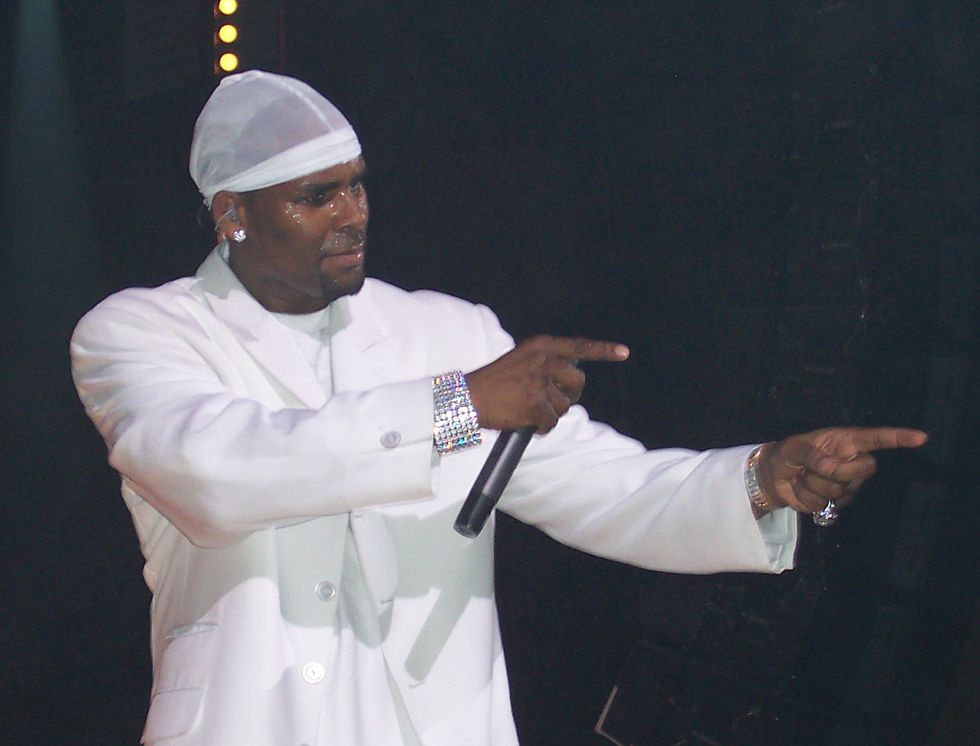This article is specifically aimed at musicians, but my thoughts apply to any creator: directors, actors, models—anyone who gets fame or fortune from their talents and anyone with the capability to let down their fans.
It’s easy for me to write a scathing article about abusive artists like R. Kelly and XXXTentacion because I don’t listen to their music and never liked them. A situation that is harder to navigate is when artists I previously liked or looked up to are outed as sexual abusers (or otherwise scummy people). Brand New was a beacon for so many depressed, lonely and/or suicidal fans, and then lead singer Jesse Lacey turned out to be an abuser. Front Porch Step’s “Drown” twisted my gut when I first heard it, and so did the news that Jake McElfresh is an abuser. PWR BTTM was a beacon for queer kids everywhere, until Ben Hopkins turned out to be a blame-shifting abuser. And these are just a few artists outed in the wake of Weinstein. There are probably more artists in my Spotify collection who aren’t as great in real life as they are in my head.
So, what is a music lover to do? First, remember that everyone is a complicated mixture of good and bad traits, thoughts and actions. This isn’t to say the actions of abusers can be excused, but rather to say that a musician’s lyrics and musical ideas aren’t void if they turn out to be an abuser. Fans of Brand New can still find comfort in Jesse Lacey’s lyrics without accepting his actions. I firmly believe two things—that people who do bad things can also do good things, and that audience interpretation is just as important as author intent. Basically, you can still like someone’s music without liking them. However, this requires an intentional effort to separate the artist from their music. No longer can you idolize the artist; you must only idolize the good things they did, stood for and created.
In a time when we are beginning to hold celebrities accountable for their actions, there’s another aspect to consider: profits. After all, whether you buy someone’s album because of the artist or purely for the music, they’re still going to get your money. In my opinion, outright spending money on the artist, whether for music or merch, is probably a bad move. People who continue to support an artist despite their actions are why scumbags like Chris Brown still have careers.
As for streaming music . . . that’s more of a gray area, and it depends on the severity of the artist’s transgressions and how strict your own moral code is. Each time you stream a song on Spotify, the artist earns less than $0.008. So, even if you spend all of your time listening to a single artist, they still make far less than if you bought a CD or t-shirt. This is where you have to balance morality and personal enjoyment. Is it okay to allow an abusive person to make a dollar from your streaming so that you can enjoy a year’s worth of fantastic music? I believe the answer can be yes. Chances are, the happiness you’ll gain from listening to the music is greater than the financial blow the artist would take if you boycotted them.
As more and more scummy celebrities are finally facing consequences, it's important to know where you stand when it comes to someone you previously supported or looked up to. It’s easy to stop buying merch—it's hard to stop loving music. And that’s okay! You don’t have to. There’s no need to feel guilty for enjoying something that was made by a problematic person. There is a need to separate that person from what you enjoy, and to keep that person from getting too much money off you. If we all do that, maybe problematic people will stop getting famous, and we won’t have to worry about any of this anymore.















